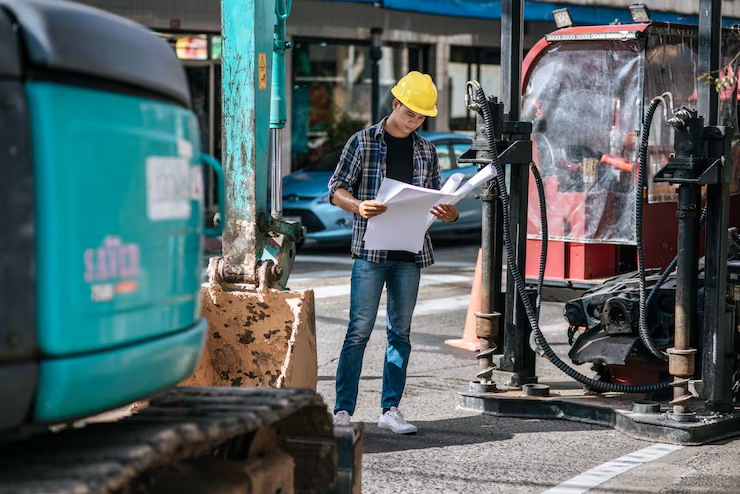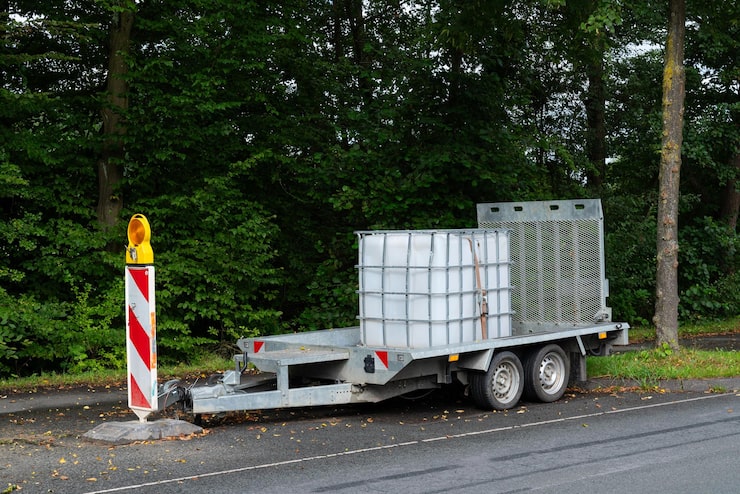In the competitive world of logistics, every trailer represents both opportunity and risk. Without proper checks, trailers can become sources of costly breakdowns, safety hazards, and compliance failures. A structured Fleet Trailer Inspection program ensures that these risks are reduced by maintaining trailers in top operating condition.
For logistics companies, inspections are not optional—they are an essential part of legal compliance and operational reliability. By identifying problems early and resolving them before they escalate, inspections safeguard not only the trailers but also the drivers, the cargo, and the company’s reputation.
Why Regular Inspections Are Critical
Trailers are constantly exposed to wear and tear, whether they are transporting goods across states or simply moving between docks. A Fleet Trailer Inspection identifies hidden issues such as brake wear, lighting malfunctions, and tire damage before they cause disruptions.
Delaying inspections creates unnecessary risk. A single breakdown can halt deliveries, incur expensive roadside repairs, and potentially lead to regulatory penalties. Regular inspections provide assurance that each trailer meets DOT standards and can safely perform its role in the supply chain.
How Inspections Reduce Operational Risks
The greatest strength of a Fleet Trailer Inspection program lies in its ability to reduce risks at multiple levels. Safety risks are addressed through careful checks of brakes, lights, and cargo securement systems. Compliance risks are mitigated by ensuring every trailer meets federal and state regulations. Financial risks are reduced by preventing fines, costly repairs, and insurance claims.
When inspections are carried out consistently, they create a cycle of reliability. Drivers have confidence in their equipment, managers gain better visibility into fleet readiness, and clients enjoy timely deliveries without disruption.
Compliance and Legal Requirements
The Department of Transportation requires annual inspections for all commercial trailers. However, many fleets adopt additional Fleet Trailer Inspection schedules throughout the year to stay compliant and competitive. Compliance goes beyond paperwork; it demonstrates a company’s commitment to safety and professionalism.
Regulatory audits are frequent in the transportation industry. Companies with strong inspection programs are better prepared to provide records and prove their compliance. In contrast, those without proper documentation face higher risks of penalties, lawsuits, and reputational damage.
The Cost Savings of Inspection Programs
Some companies view inspections as an additional expense, but in reality, they are a long-term cost-saving measure. A proactive Fleet Trailer Inspection helps catch small issues before they grow into major repairs. For example, replacing worn brake pads is far cheaper than repairing damage caused by brake failure during transit.
Inspections also reduce downtime by preventing unexpected breakdowns. Keeping trailers in continuous operation translates into more deliveries, better fleet utilisation, and stronger customer satisfaction. Over time, the savings from reduced downtime and avoided penalties outweigh the costs of inspections many times over.
The Role of Technology in Fleet Inspections
Digital tools have transformed the way inspections are managed. Mobile apps, telematics, and real-time reporting allow managers to monitor inspection results across the entire fleet. A Fleet Trailer Inspection program that integrates technology provides better data accuracy, faster reporting, and improved decision-making.
With predictive analytics, managers can anticipate when parts will need servicing and schedule maintenance proactively. This reduces unplanned downtime and extends trailer life. The use of technology not only strengthens compliance but also turns inspections into a strategic advantage for the business.
Benefits for Fleets of All Sizes
Whether a company manages ten trailers or several hundred, the benefits of inspections remain the same. Smaller fleets rely on inspections to maintain consistency and reduce the risk of disruption from a single failure. Larger fleets benefit from structured Fleet Trailer Inspection programs that create uniform safety and compliance standards across multiple sites.
No matter the size, inspections provide visibility, predictability, and accountability. They help logistics teams optimise resources and ensure every trailer is contributing to overall efficiency.
Zelo Express: Your Partner for Reliable Inspections
Zelo Express offers more than standard inspection services. Our Fleet Trailer Inspection programs are designed to reduce risk and improve efficiency by combining audits with operational support.
We provide trailer spotting, shuttle operations, safety checks, and fleet management to complement inspections. This ensures that issues uncovered during audits are not only identified but resolved with practical solutions. With Zelo Express, inspections become part of a larger logistics strategy focused on compliance, safety, and cost savings.

FAQs About Fleet Trailer Inspections
What does a fleet trailer inspection involve?
An inspection involves checking brakes, lighting, tires, suspension, and load security. It ensures trailers are safe, compliant, and ready for the road. These checks are thorough and detailed, designed to eliminate risks before they become serious issues.
How often should inspections be performed?
Federal law requires annual inspections, but many companies benefit from quarterly or monthly checks. High-volume fleets often inspect more frequently to ensure trailers stay compliant and reliable. Regular reviews provide peace of mind that every trailer is roadworthy and efficient.
Can inspections save money for logistics companies?
Yes, inspections reduce costs by identifying problems early and avoiding expensive repairs. They also prevent downtime, which can cost thousands in missed deliveries. Over time, inspections become an investment in efficiency and long-term profitability.
Are inspections necessary for smaller fleets?
Absolutely. Even small fleets are subject to the same compliance requirements as larger ones. A single non-compliant trailer can put a small operation at risk of penalties and lost business. Inspections help smaller fleets achieve the same reliability and professionalism as larger competitors.
Why choose Zelo Express for inspection services?
Zelo Express provides complete inspection programs backed by yard audits, shuttle operations, fleet oversight, and trailer safety checks. This ensures that inspections are not just a legal requirement but a gateway to improved efficiency, safety, and long-term cost savings.
Final Thoughts
In logistics, the margin for error is small. A single compliance failure, accident, or breakdown can damage a company’s reputation and financial stability. A structured Fleet Trailer Inspection program provides the assurance that every trailer in the fleet is safe, compliant, and efficient.
With Zelo Express as a partner, inspections go beyond legal compliance. We deliver integrated solutions that improve safety, reduce risks, and strengthen overall operations. For companies aiming to remain competitive in today’s demanding logistics landscape, investing in regular inspections is not a choice—it is a necessity.




